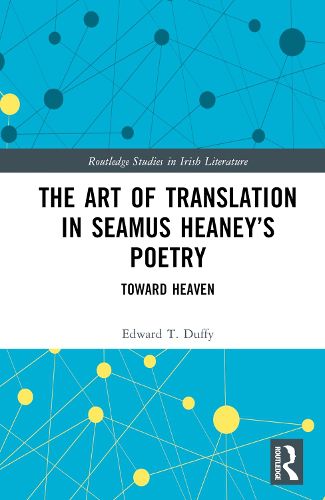Readings Newsletter
Become a Readings Member to make your shopping experience even easier.
Sign in or sign up for free!
You’re not far away from qualifying for FREE standard shipping within Australia
You’ve qualified for FREE standard shipping within Australia
The cart is loading…






The Art of Translation in Seamus Heaney's Poetry is a critical study of the poet's later work. While exploring his practice as a translator, it also traces his increasing preoccupation with the possibilities and conditions of translation in the theological sense of being lifted up in spirit. To the work of this philosophical poet, who would be both "earthed and heady" this book brings the insights of ordinary language philosophy as practiced by Stanley Cavell. It devotes separate chapters to Station Island and three later collections: Seeing Things, Electric Light and Human Chain. The first of these addresses the most fundamental change in Heaney's life when he acknowledges the "need and chance to re-envisage" his Irish-Catholic upbringing; it is also replete with both the activity and the trope of translation. Published seven years later, Seeing Things begins with a translation of Virgil's golden bough episode and ends with a similar crossing over into the underworld by Dante. Heaney transforms both into poems about poetry. In Electric Light, Heaney returns to Virgil, but now he concentrates not on the hero of the Aeneid but on Virgil's earlier efforts in pastoral, a mode of writing that Heaney takes as a model for his own time and place of "devastated order." Heaney returns to the Aeneid in Human Chain, but this time around he gives all his attention to the scene of the human souls in Elysium seeking rebirth and turns it into an image for the need and chance of pronouncing "a final Yes" to our world and our place in it.
$9.00 standard shipping within Australia
FREE standard shipping within Australia for orders over $100.00
Express & International shipping calculated at checkout
The Art of Translation in Seamus Heaney's Poetry is a critical study of the poet's later work. While exploring his practice as a translator, it also traces his increasing preoccupation with the possibilities and conditions of translation in the theological sense of being lifted up in spirit. To the work of this philosophical poet, who would be both "earthed and heady" this book brings the insights of ordinary language philosophy as practiced by Stanley Cavell. It devotes separate chapters to Station Island and three later collections: Seeing Things, Electric Light and Human Chain. The first of these addresses the most fundamental change in Heaney's life when he acknowledges the "need and chance to re-envisage" his Irish-Catholic upbringing; it is also replete with both the activity and the trope of translation. Published seven years later, Seeing Things begins with a translation of Virgil's golden bough episode and ends with a similar crossing over into the underworld by Dante. Heaney transforms both into poems about poetry. In Electric Light, Heaney returns to Virgil, but now he concentrates not on the hero of the Aeneid but on Virgil's earlier efforts in pastoral, a mode of writing that Heaney takes as a model for his own time and place of "devastated order." Heaney returns to the Aeneid in Human Chain, but this time around he gives all his attention to the scene of the human souls in Elysium seeking rebirth and turns it into an image for the need and chance of pronouncing "a final Yes" to our world and our place in it.